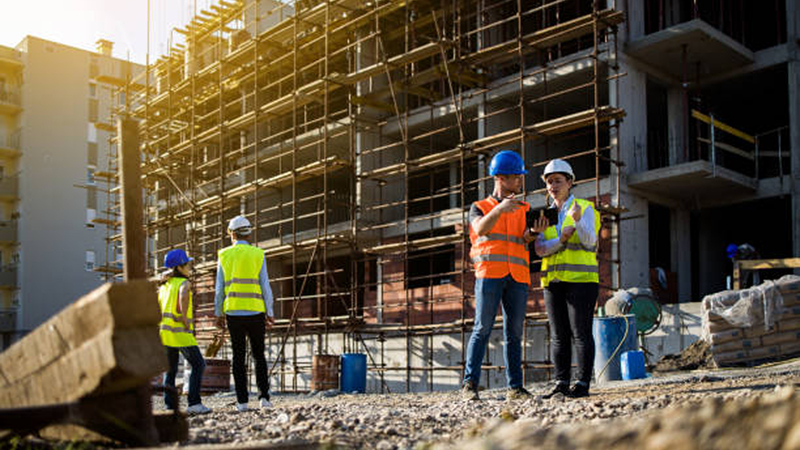As a tradesman in the UK, it’s essential to get a professional online presence. It is the first step in building credibility, producing leads and growing your business in the long term. Whether you are a sole trader, a developing team, or an established contractor, understanding the true cost of a website will help you plan your budget and save any surprises down the track. In this guide, you will find then-find real-life data and industry insight, along with some easy-to-follow tips, so you can plan for every detail of the process of setting it up issue of website construction and upkeep, so that, in the end, for will genuinely add to the value of your business .
Why a Website Is a Smart Investment for Tradesmen
It is reported that close to 77% of homeowners and commercial clients researched trades online prior to requesting a quote, and almost 60% of jobs are impacted, positively or negatively by the digital presence of reviews and portfolios. A contemporary website is more than an online brochure, it is a sales tool, a trust builder, and it is also often the biggest source of referrals for your business.
Website Construction Cost Breakdown
1. Design & Development
- DIY Website Builders (Wix, Squarespace, GoDaddy): £150–£300 for the year but with restrictions on features and branding.
- Freelance or Small Business: £500–£3,500 upfront for the most basic level sites, commonly called “brochure” sites (5–10 pages) and generally including basic SEO set up.
- Regional / Full-Service One-off: £3,000–£8,000 for a custom site, with higher rates (£20,000+) for a complex build site with booking forms, features and integrations, and or e-commerce.
- Custom Booking/Feature development: Expect to pay an additional £500–£2,000+ per feature if you want something like an online quote estimation tool, an integrated calendar tool, or CRM implementation.
2. Domain & Hosting
- Domain Registration:
.co.uk domains typically cost £10–£20/year. Premium or keyword-rich domains may cost more. - Hosting:
£100–£200/year for reliable business hosting (SSL certificates, daily backups, support). DIY platforms bundle hosting in their monthly fee.
3. Email & Security
- Professional business email (
- [email protected]
- ):
£50–£150/year, not always included with hosting. - SSL security (for Google trust and customer peace of mind):
Often bundled with hosting, or £30–£200/year standalone.
4. Ongoing Maintenance
- Routine Updates, Backups, Fixes:
£20–£50/month. Custom sites may need more ongoing support. - Major Rebuilds/Redesigns Every Few Years:
£1,000–£5,000 or more, depending on scope, integration, and need to remain modern.
5. SEO & Marketing
- Local SEO Setup and Monitoring:
£50–£1,000/month depending on depth of service, reporting, blog-writing, and backlink campaigns. - Paid Advertising:
Optional; can scale from £100/month to several thousand, depending on your ambitions.
6. Hidden & Real-World Costs
- Time chasing developers/agencies for updates
- Content creation (professional photography, proofreading, copywriting):
£200–£1,000 for initial assets - Plugin or Site Extension Fees:
From £50/year for paid plugins (booking calendars, galleries, review integrations)
Cost Table: Typical Tradesman Website Construction Cost (2025)
| Item | DIY Builder | Freelancer/Small Agency | Regional Agency |
| Upfront build | £150-£300/yr | £500-£3,500 | £3,000-£8,000 |
| Domain (annual) | £10-£20 | £10-£20 | £10-£20 |
| Hosting (annual) | Included | £100-£200 | £100–£200 |
| SSL certificate | Included | £30–£200 | Included/£50–£200 |
| Maintenance (monthly) | Minimal | £20–£50 | £30–£100 |
| Booking/calendar features | Limited | +£500–£2,000 | +£500–£2,000 |
| SEO/Marketing (monthly) | , | £50–£1,000 | £100–£2,000 |
| Total First Year | £250–£600 | £1,000–£5,000 | £4,000–£12,000 |
Real Experiences: What UK Tradesmen Have Paid
- A heating company in Hertfordshire paid £2,750 for a five-page website with integrated reviews and a WhatsApp booking button; ongoing support was £40/month plus £500/year for SEO.
- A decorator in Manchester built a DIY site for £220/year, but soon upgraded to a freelancer-built model (£950 upfront) for better mobile speed and custom gallery features.
- Small builders with custom booking forms or quoting tools reported spending an average of £800 extra on these integrations.
Personal stories reveal that investing in a higher-quality site led to better client feedback, more local search leads, and a higher win-rate on estimates, even when up-front costs felt steep.
What Can Affect Your Website Construction Cost?
- Number of custom pages (services, gallery, blog)
- Quality of design assets (personal project photos outperform stock)
- Special features needed (online estimates, review feeds, booking tools)
- Ongoing marketing requirements
- Level of post-launch support or updates
Ask for itemized quotes before committing, and clarify exactly which features are included (and which will cost extra down the line).
Hidden Cost Traps to Avoid
- Annual plugin renewals or missed backups resulting in site downtime.
- Not budgeting for redesigns or fresh content – increasingly vital as websites age.
- Relying on “low-cost” DIY platforms without accounting for add-ons, time spent, and branding limitations.
Conclusion
Understanding your optimal website construction cost empowers you to invest wisely, protect cashflow, and choose features that genuinely benefit your trade business. A modern, professional site is an invaluable asset, delivering trust, building authority, and supporting growth in an increasingly digital world. Take time to compare options, ask for clear breakdowns, and prioritize real-world value over the cheapest quote. For expert help with trade websites, consult Tradedesign.uk for a quote grounded in industry best practice.






